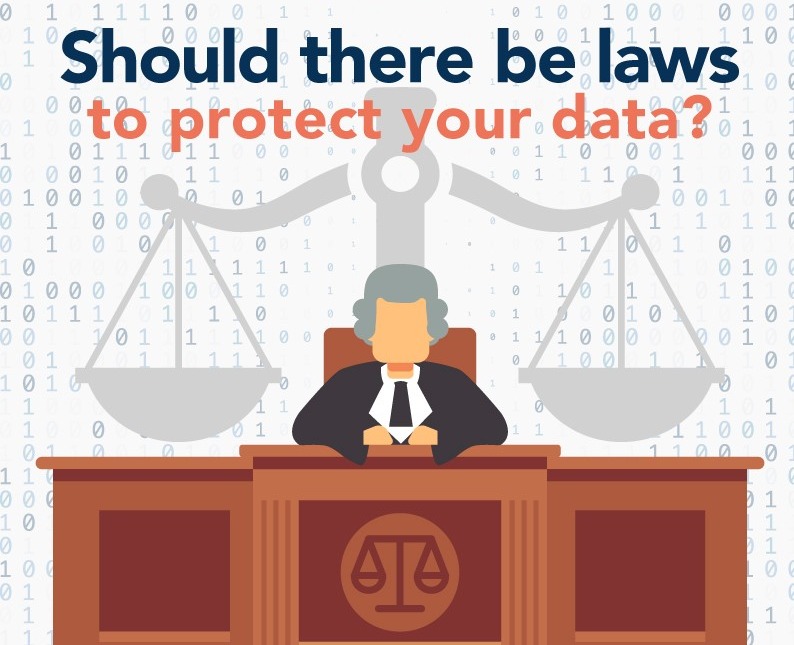The Age of Privacy has arrived. Our relationship with data has evolved dramatically over the past 20 years, as the systems have become more complex and the lines around ownership more blurred.
These days, data collection goes far beyond email address to precise location to biometric and intimate health data. The explosion in data collection – not just the volume but also the variety and velocity of data – has led to consumer concerns around security and privacy. More and more, people live their lives online. And as people put more of their lives online, they expect more control over their personal information.
DataGrail recently partnered with OnePoll to survey 2,000 Americans to understand concerns people have when it comes to their personal data privacy. We found that on average, people have 27 online accounts, and as people put more of themselves online, they expect more control over their personal data.
The research showed a growing concern and emphasis on privacy between consumer and business relationships.
- 4 in 5 Americans think there should be a law in place to protect personal data
- 3 in 4 would boycott their favorite retailer if it failed to keep personal data safe
- 7 in 10 want to deny businesses the ability to sell their data to third parties
- 83% expect to have control over how businesses use their data
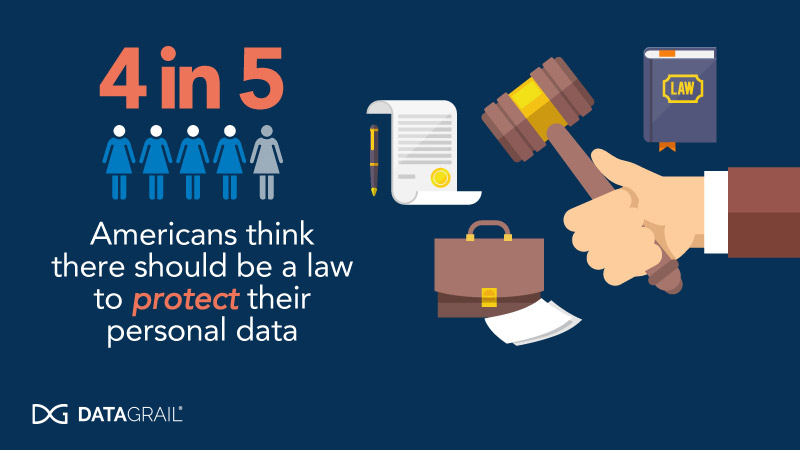
Consumers expect to have more control and transparency over their personal data.
Consumers know that businesses are selling their data, but they don’t know what they can do to take back control. 82% of people believe that there should be a law to protect their personal data. With the implementation of the CCPA in January and enforcement coming later this year, consumers can request to access or delete their data, and businesses are required to be more transparent with their practices.
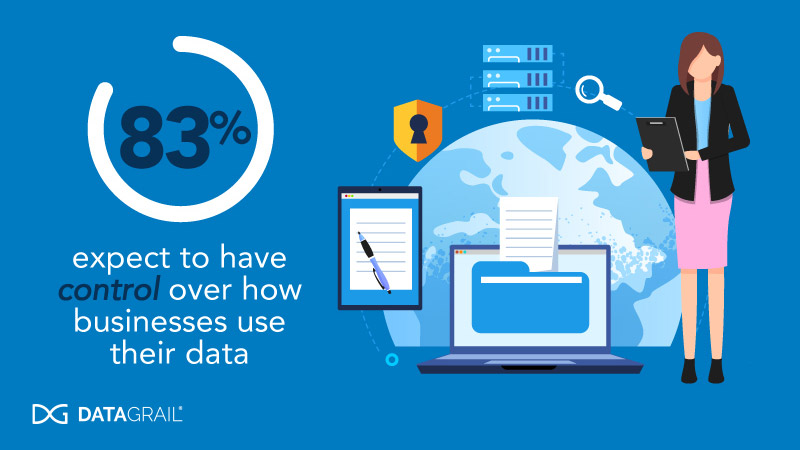
The CCPA also requires businesses to state in their privacy reports the purposes for processing data and also provide a method for consumers to opt-out of their data being sold. DataGrail’s survey shows that 71% of people would like to know which businesses are collecting data on them and how they use it and 68% expect to be able to opt-out of a company selling their data to a third party. In fact, 54% of people are frustrated by companies that use their data to serve targeted personalized ads.
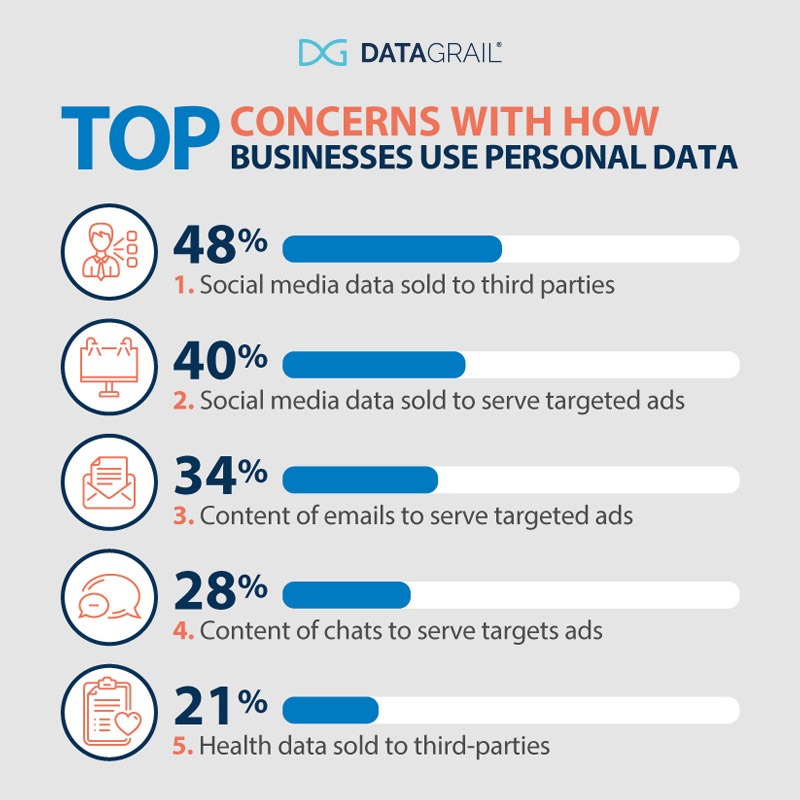
People demand control because existing protections don’t always work, and they are worried about how companies use the data from their devices.
People are worried about how companies collect and use data from their devices. More than 82% of people express concerns about businesses monitoring or collecting data from their phone microphone, laptop webcams, home devices (Google Home, Alexa, etc), or devices (phone, laptop, etc) with location tracking. These are legitimate concerns considering:
- 66% of people reported receiving emails from companies that they have never heard of.
- 68% of people tend to immediately unsubscribe when they get too many emails from a brand.
- 62% of people report that they continue to receive emails from a company after unsubscribing.
Receiving this type of unwanted communication from companies or targeted advertisements for unwanted services frustrates consumers, especially if it’s more than a one-time occurrence. As existing measures don’t always work, many are looking to regulators for a more concrete solution.
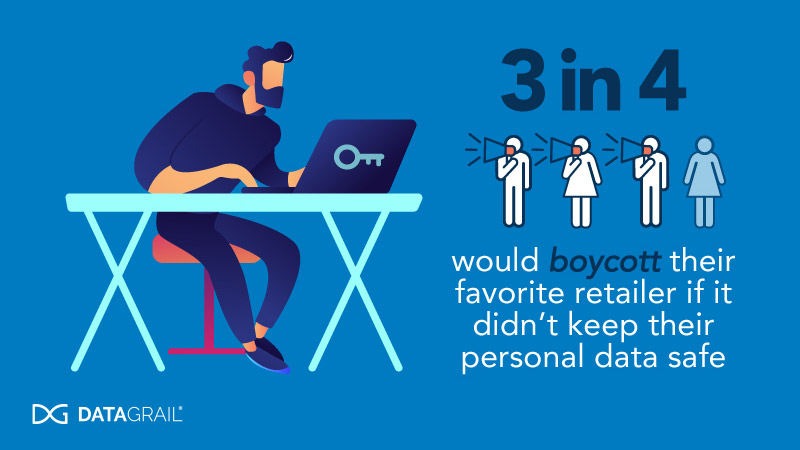
Consumers are more than willing to take their wallets elsewhere.
DataGrail’s survey found that 78% of people wouldn’t shop at their favorite retailer if they sold their personal data. Additionally, 73% of people would be willing to pay more to online services or businesses to ensure that their data is not used or sold for ads, marketing, or sales purposes. In recent years, consumers have become more aware of the value of their personal data, both in terms of their privacy and the value it can have for businesses. With consumers changing their evaluation of an online service, businesses may need to modify their practices to align with consumer expectations.
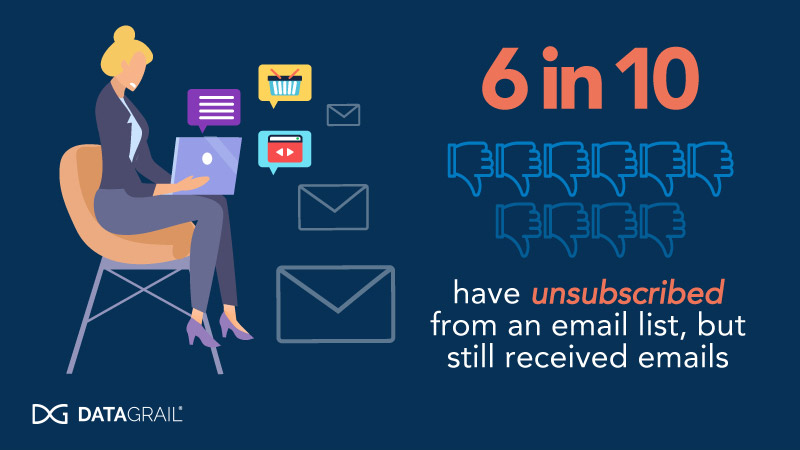
Regulators are listening.
Regulators are indeed responding. Further, several states have also responded with their own regulations, with the California Consumer Privacy Act (CCPA) being the most consumer-forward and prominent. However, education and awareness still need work, as only 24% of people are familiar with CCPA. The law is intended to increase privacy protections for consumers, provide them with more control over their data, and require greater transparency from businesses. The law goes a long way to meet consumer demands, including many identified by our survey. Given the rights included under CCPA:
- 65% want to know and access what information businesses collect about them.
- 62% want the right to opt-out and tell a business not to share/sell personal information.
- 58% want protections against businesses that fail to uphold the value of their privacy.
- 49% want the right to delete their personal data that is held by the business.
New state privacy regulations continue to emerge. In the past year, we’ve seen California, Nevada, and Maine pass regulations — with Washington, New York and several other states not far behind. As we head into a new decade, 2020 could be the year that data privacy regulation finally takes off and a national privacy framework enforced by the government.
Methodology: DataGrail partnered with OnePoll (a third-party research company) to survey 2,000 Americans, nationwide, over the age of 18 to understand their concerns and perceptions as it relates to their personal data online. Respondents were surveyed in January 2020.

